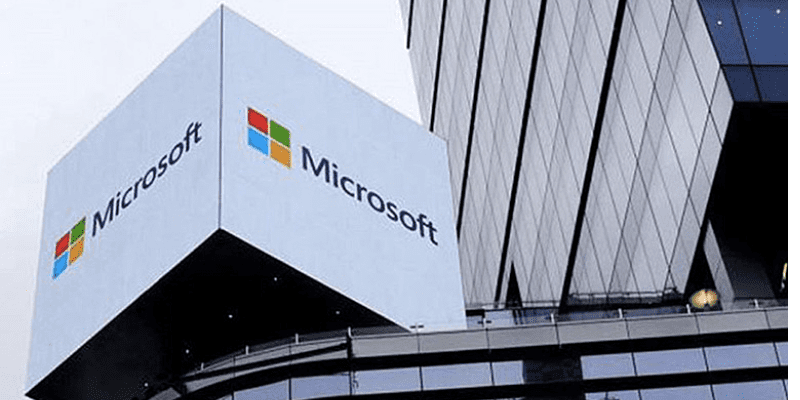Explosive Leak: OpenAI's Secret Payments to Microsoft Unveiled

Financial scrutiny into OpenAI has intensified following a year of considerable dealmaking and ongoing rumors of an impending Initial Public Offering (IPO). Leaked financial documents, brought to light by tech blogger Ed Zitron, offer a rare glimpse into the company's revenue and compute expenditures over recent years. According to these documents, Microsoft received a substantial $493.8 million in revenue share payments from OpenAI in 2024. This figure saw a significant increase in the first three quarters of 2025, reaching $865.8 million.
This revenue sharing mechanism is part of a previous agreement where Microsoft invested over $13 billion into the prominent AI startup. While neither OpenAI nor Microsoft has publicly confirmed the exact percentage, it is widely reported that OpenAI shares 20% of its revenue with the software giant. Conversely, Microsoft also provides revenue kickbacks to OpenAI, estimated at about 20% of the revenues generated from Bing, which is powered by OpenAI, and the Azure OpenAI Service, which offers cloud access to OpenAI's models for developers and businesses. A source familiar with the matter clarified that the leaked figures represent Microsoft’s net revenue share, meaning they do not account for the royalties Microsoft pays back to OpenAI from Bing and Azure OpenAI services, as these figures are deducted from Microsoft's internally reported revenue share numbers.
Based on the widely reported 20% revenue-share statistic, these figures allow for an inference of OpenAI's total revenue. It suggests OpenAI's revenue was at least $2.5 billion in 2024 and a minimum of $4.33 billion in the first three quarters of 2025, although actual revenues are likely higher. These estimates align somewhat with previous reports from The Information, which placed OpenAI’s 2024 revenue at approximately $4 billion and its revenue for the first half of 2025 at $4.3 billion. Further adding to the financial picture, OpenAI CEO Sam Altman recently stated that the company's revenue is "well more" than reported figures of $13 billion annually, projecting an annualized revenue run rate exceeding $20 billion by the end of the year, with a bold ambition to reach $100 billion by 2027.
However, the documents also shed light on OpenAI's significant expenditure on compute, particularly for inference. Ed Zitron's analysis indicates that OpenAI may have spent roughly $3.8 billion on inference in 2024, a cost that escalated to approximately $8.65 billion in the first nine months of 2025. Inference refers to the computational power required to run a trained AI model to generate responses. Historically, OpenAI has predominantly relied on Microsoft Azure for compute access, but it has recently diversified its infrastructure through deals with CoreWeave, Oracle, and more recently, AWS and Google Cloud. While previous reports suggested OpenAI’s entire compute spend was around $5.6 billion for 2024 and its “cost of revenue” was $2.5 billion for the first half of 2025, a source noted that while model training costs are largely non-cash (paid via Microsoft credits), inference spend is primarily cash-based.
These financial revelations, although not providing a complete picture, suggest a critical implication: OpenAI could be spending more on inference costs than it is generating in revenue. This prospect significantly fuels the ongoing "AI bubble" discussions prevalent across the tech industry, raising questions about the long-term profitability and sustainability of massive investments in AI, particularly if a leading model developer like OpenAI struggles to turn a profit on its operational costs. Neither OpenAI nor Microsoft offered comments when approached for information.
You may also like...
Bundesliga's New Nigerian Star Shines: Ogundu's Explosive Augsburg Debut!

Nigerian players experienced a weekend of mixed results in the German Bundesliga's 23rd match day. Uchenna Ogundu enjoye...
Capello Unleashes Juventus' Secret Weapon Against Osimhen in UCL Showdown!

Juventus faces an uphill battle against Galatasaray in the UEFA Champions League Round of 16 second leg, needing to over...
Berlinale Shocker: 'Yellow Letters' Takes Golden Bear, 'AnyMart' Director Debuts!

The Berlin Film Festival honored
Shocking Trend: Sudan's 'Lion Cubs' – Child Soldiers Going Viral on TikTok

A joint investigation reveals that child soldiers, dubbed 'lion cubs,' have become viral sensations on TikTok and other ...
Gregory Maqoma's 'Genesis': A Powerful Artistic Call for Healing in South Africa

Gregory Maqoma's new dance-opera, "Genesis: The Beginning and End of Time," has premiered in Cape Town, offering a capti...
Massive Rivian 2026.03 Update Boosts R1 Performance and Utility!

Rivian's latest software update, 2026.03, brings substantial enhancements to its R1S SUV and R1T pickup, broadening perf...
Bitcoin's Dire 29% Drop: VanEck Signals Seller Exhaustion Amid Market Carnage!

Bitcoin has suffered a sharp 29% price drop, but a VanEck report suggests seller exhaustion and a potential market botto...
Crypto Titans Shake-Up: Ripple & Deutsche Bank Partner, XRP Dips, CZ's UAE Bitcoin Mining Role Revealed!

Deutsche Bank is set to adopt Ripple's technology for faster, cheaper cross-border payments, marking a significant insti...



